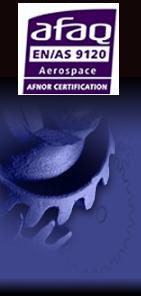

 |  |
 |


|
Aerospace Taper Roller Bearings
The term roller bearing in aerospace terms usually depicts either a cylindrical roller bearing, a taper roller bearings or a specialist roller device such as those found on flap and slat tracks. Aerospace cylindrical roller bearings are usually found in one of four places, pumps, engines, engine gearboxes or auxiliary power units (APUs). The cylindrical roller bearing is designed for medium speed applications where heavy radial loads or shock loads can be encountered. Being designed with cylindrical rolling elements, the ability of the cylindrical roller bearing to take axial loads is at best minimal and depending on internal ring shoulder design, which in some cases is non-existent. Cylindrical roller bearings, if fitted and maintained properly, will normally return many hours of operation life. Their large roller to raceway contact zone (visualised as a line as apposed to a ball bearings “point” contact zone) gives them a large load capacity but at the sacrifice of high speeds. Roller bearing construction consists of an inner ring, outer ring, a collection of rollers and normally a cage (although for very low speed/oscillation situations and high loads, a full complement bearing can be used). With cylindrical rollers, cage construction is normally vital. Due to the simple design of the other components within a cylindrical roller bearing, the cage is usually the first component to fail in a normal fatigue situation. Cage materials can vary from steel, brass, phenolic, polyamide and other more exotic self-lubricating impregnated designs. The rings and rollers can also be made from various grades of steel, not just standard 52100 bearing steel. For example M50 steels have been used with great success in vital areas such as helicopter gearboxes. Like their commercial counterparts, careful attention is paid to roller and raceway design with radiiused rollers and recessed track corners relieving both roller and raceway of any edge loading during normal and occasional extreme running conditions. Aerospace taper roller bearings are normally associated with wheel applications for virtually all aircraft. Their ability to take radial and axial loads (both of which are experienced in appreciable magnitudes on landing and take off) is unmatched. The taper roller bearing essentially consists of two elements, a cup (the outer portion) and the cone, (the inner portion). The cone is an integral inner ring with tapered rollers usually separated by a special cage. The cup is simple by comparison, simply letting the cone’s rollers sit on its inner track. Correct fitting of taper roller bearings is vital. Too much preload (pushing the cone into the cup raceway) will cause enormous heat build up and potentially, catastrophic failure. Too little preload and the bearing could literally explode if its natural frequency was found during use. Taper bearings can also be found in aerospace gearboxes. Again, their ability to take axial and radial loads in a reasonably compact space has yielded significant lifetime figures. Many specialist aerospace roller bearings can be found on aircraft. For example aircraft door mechanisms have simple rollers that follow a cam profile when the door is being opened or shut. Some track and slat devices use specialist roller bearings to move the flaps or slats in or out. Undercarriages can also use special rollers in the uplock mechanisms.. Contact us now and let us show you exactly what we can do for you. | |